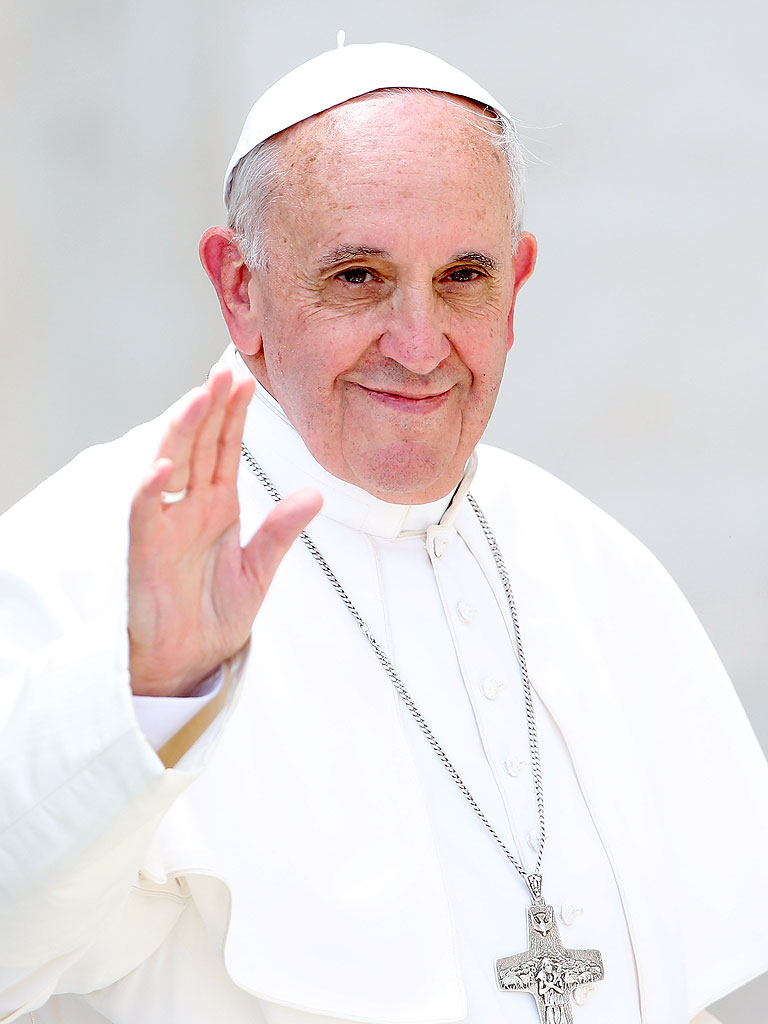
• Dec. 17, 1936 Jorge Mario Bergoglio was born in Buenos Aires to Italian immigrant parents
• 1958 Entered the Jesuit order
• 1969 Ordained as a priest
• 1973 Became head of Jesuits in Argentina
• 1992 Appointed Auxiliary Bishop of Buenos Aires
• 1998 Became Archbishop of Buenos Aires
• 2001 Created Cardinal by Pope John Paul ||
• 2013 Elected the 266th Pope, becoming the first Jesuit and first Latin American pontiff Feb. 9-12, 2025 He was unable to deliver a speech at an event due to bronchitis and difficulty breathing
• Feb.-March He received treatment in hospital for a total of 38 days
• April 21 Died at age 88
In the heart of the Catholic Church, where centuries of tradition meet the needs of the modern world, a humble man from Argentina rose to become a global spiritual leader. Jorge Mario Bergoglio, now known to the world as Pope Francis, has become a powerful voice for simplicity, mercy, and justice. His journey from the streets of Buenos Aires to the throne of St. Peter is a story of faith, humility, and a deep commitment to serving those on the margins of society.
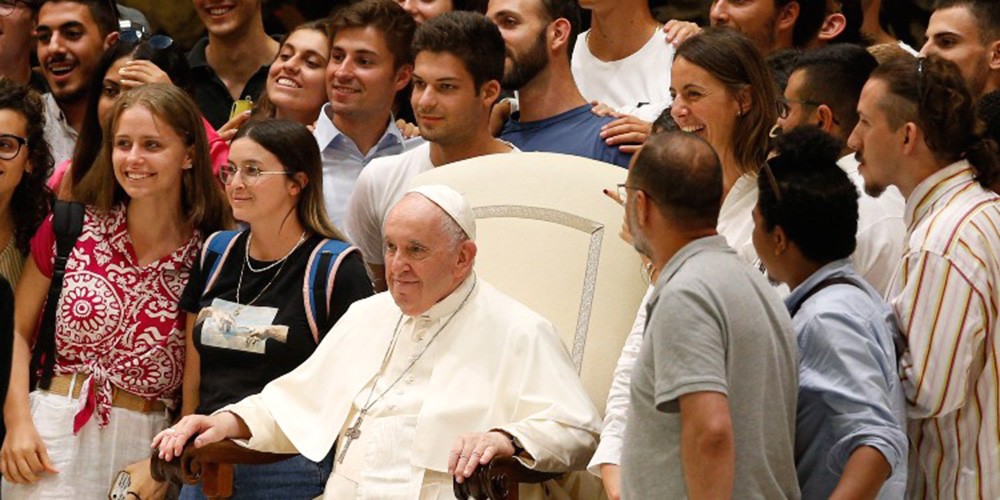
From Buenos Aires to the Vatican
Pope Francis was born on December 17, 1936, in Buenos Aires, Argentina. He is the first Jesuit pope, the first pope from the Americas, and the first non-European pope in over 1,200 years. The son of Italian immigrants, his father, Mario Bergoglio, worked for the railway, and his mother, Regina Sivori, was a devoted homemaker raising five children.
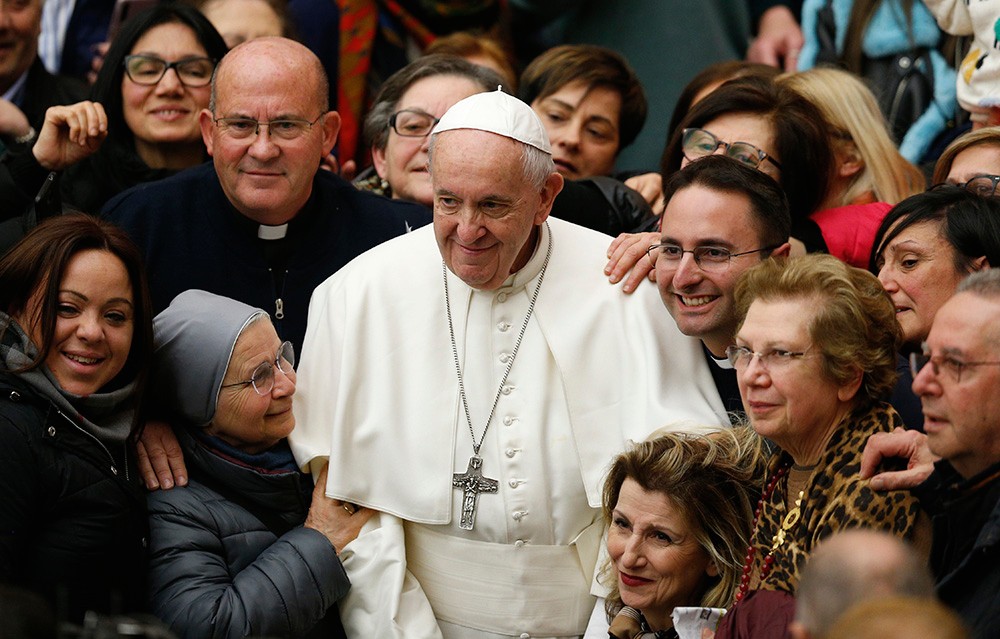
Before entering the priesthood, young Jorge trained as a chemical technician. But his heart led him to a life of service. In 1958, he joined the Society of Jesus, beginning a lifelong path of academic excellence, spiritual formation, and deep pastoral care. After studying in Argentina, Chile, and Spain, he was ordained a priest in 1969 and later became a major figure in Jesuit education and spiritual leadership.
As Archbishop of Buenos Aires, Bergoglio lived a life of radical simplicity. He gave up the lavish archbishop’s residence to live in a small apartment, used public transport, and cooked his own meals. He once said, “My people are poor and I am one of them.” This spirit of humility and closeness to the people has stayed with him throughout his life.
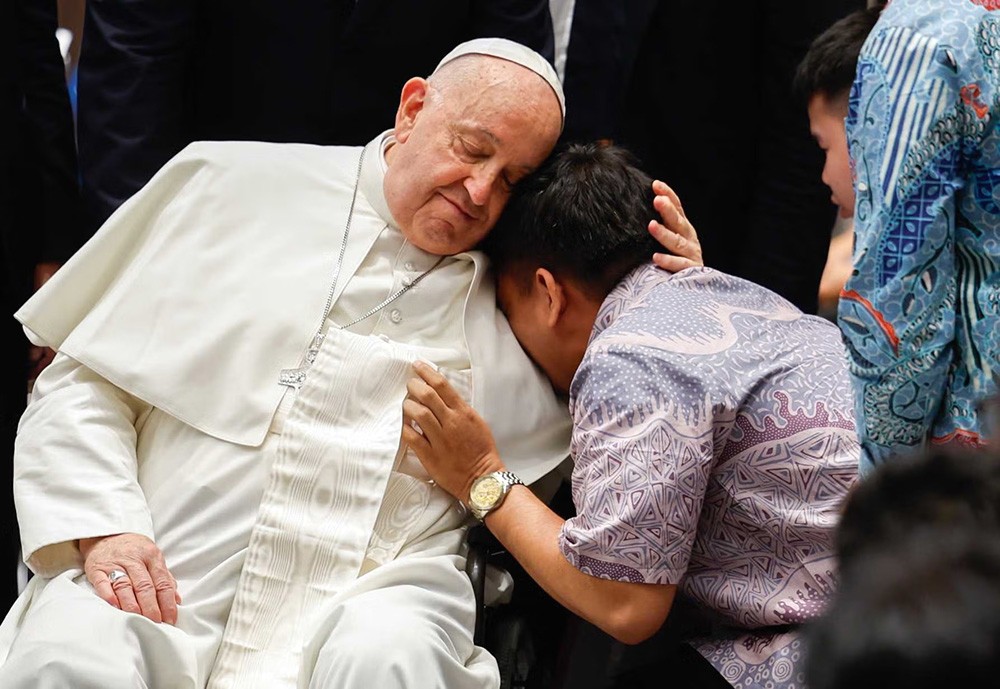
Elevation to the Papacy
On March 13, 2013, white smoke rose from the Sistine Chapel, announcing to the world that a new pope had been chosen. The words “Habemus Papam” echoed across St. Peter’s Square as Cardinal Bergoglio was introduced as Pope Francis. He chose the name Francis in honor of Saint Francis of Assisi, the beloved saint known for his life of poverty, peace, and love for all creation.
From his first appearance, it was clear that this would be a different kind of papacy. Pope Francis greeted the crowd not with a formal speech, but with a simple, “Buona sera” (Good evening). Before blessing the people, he bowed his head and asked them to pray for him a powerful moment that revealed his heart as a servant leader.
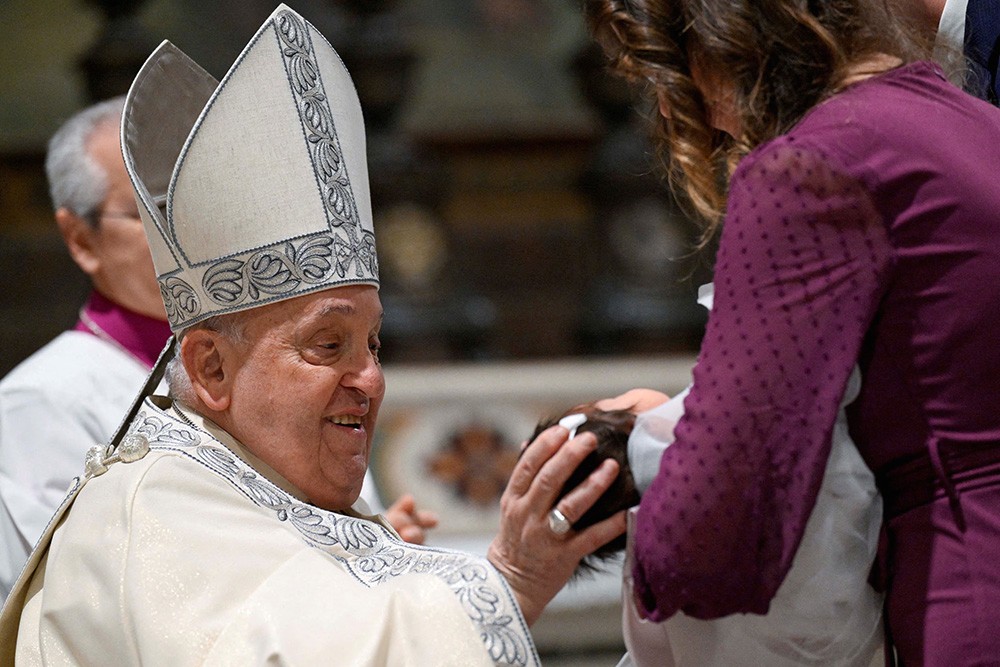
A Papacy of Simplicity and Reform
Pope Francis has called for a “Church that is poor and for the poor.” He urges Catholics to return to the roots of the Gospel mercy, compassion, and love. He speaks often about being a missionary Church, one that reaches out instead of remaining closed within itself.
He has introduced reforms in the Vatican, aiming for greater transparency, accountability, and pastoral care. His leadership style is less about command and control, and more about listening, dialoguing, and guiding with love.
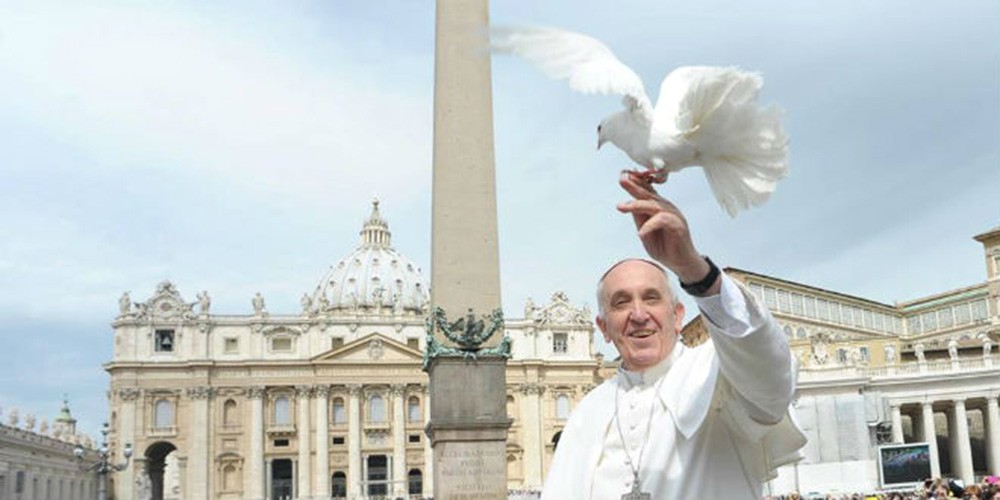
In his landmark encyclical Laudato Si’ (Praise Be to You) in 2015, Pope Francis addressed the global climate crisis, calling on all people to care for “our common home.” He spoke with urgency about environmental destruction, warning against greed, overconsumption, and the “throwaway culture” that treats people and the planet as disposable.
He continues to speak out against economic inequality, war, consumerism, and indifference to the poor. His teachings remind us that the Gospel is not just a message to be preached, but a guide to be lived.
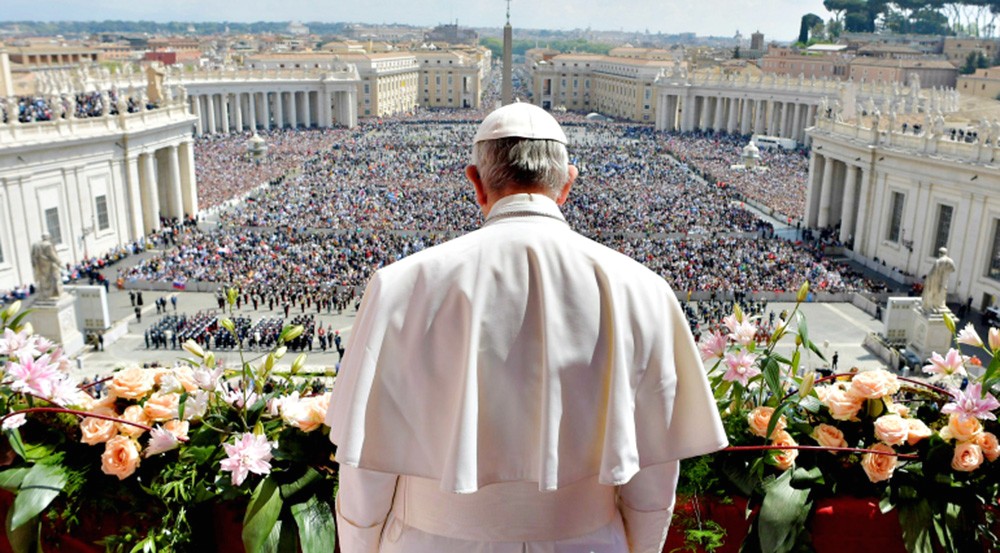
A Global Pilgrim of Peace
Pope Francis has traveled the world to share messages of peace, reconciliation, and human dignity. He visits places affected by war, poverty, and disaster, offering not just words, but presence. Whether it’s washing the feet of prisoners and refugees or embracing victims of violence, he brings the heart of Christ to every encounter.
In 2019, Pope Francis made history by visiting the United Arab Emirates, becoming the first pope to visit the Arabian Peninsula. There, he signed the Document on Human Fraternity with the Grand Imam of Al Azhar, calling for peace and mutual respect between Christians and Muslims. This moment was a powerful step toward interreligious dialogue and global unity.
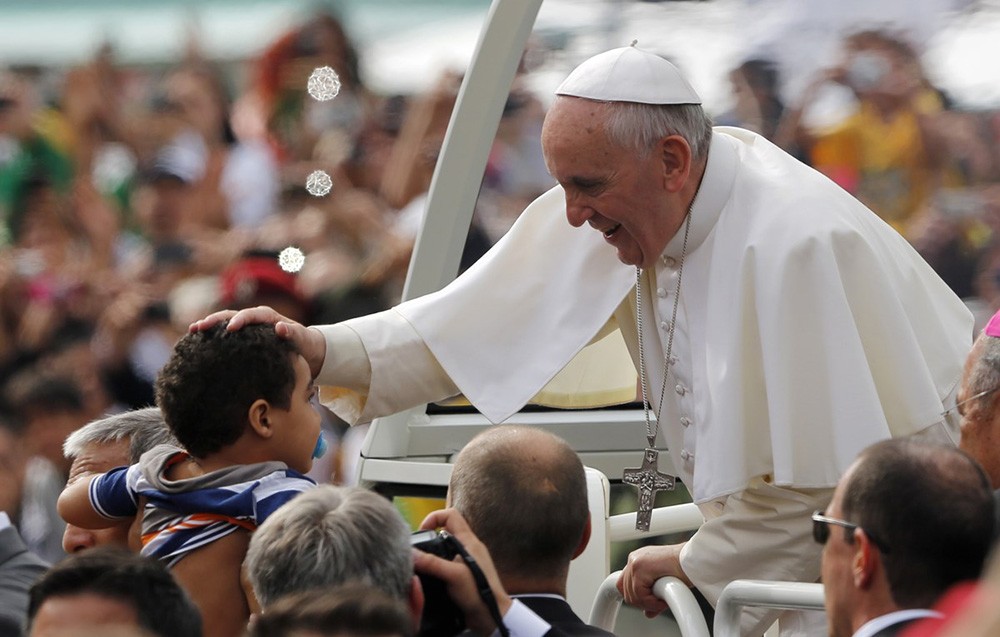
His travels often take him to places of religious importance, including a deeply moving visit to Lourdes, France a town known for miracles and healing. There, at the Grotto of Massabielle, where the Blessed Virgin Mary appeared to Saint Bernadette, Pope Francis prayed in silence and entrusted the suffering of the world to Mary’s care. He reminded pilgrims that Lourdes is not only a place of miracles but a school of faith and compassion.
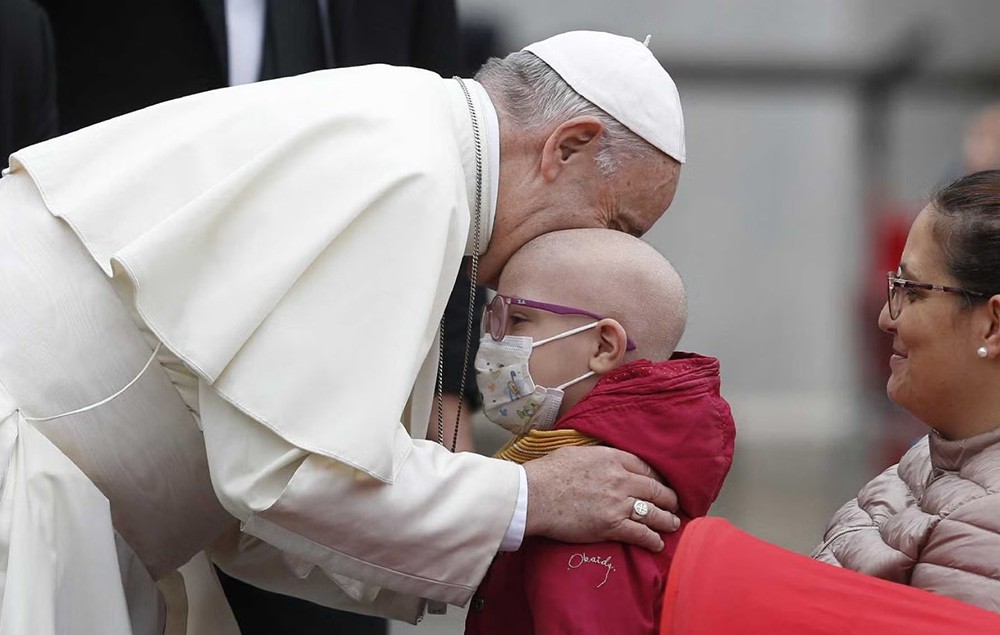
A Champion of the Marginalized
At the heart of Pope Francis’ mission is his love for those on the edges of society the poor, the sick, the elderly, migrants, the disabled, prisoners, and the forgotten. He once declared, “The name of God is mercy,” and his actions reflect that mercy every day.
In 2015, he launched the Jubilee Year of Mercy, encouraging Catholics to practice forgiveness, kindness, and compassion in everyday life. In Rome, he opened the Holy Door at St. Peter’s Basilica and made it easier for people to return to the Church through confession and acts of charity. Around the world, dioceses opened their own Holy Doors, and many churches started new efforts to help the poor.

In Vatican City, Pope Francis set up mobile clinics, showers, and barbershops for the homeless, turning his message into practical love. He often reminds clergy to be shepherds who smell like their sheep, encouraging them to be close to their people and live simply.
Apostolic Journey to Sri Lanka – A Message of Unity and Peace
One of the most heartfelt moments in his papacy was his apostolic visit to Sri Lanka in January 2015, just days after the country’s presidential election. Arriving on January 13, Pope Francis was warmly welcomed by then newly elected President Maithripala Sirisena and by the people of Sri Lanka, who were still healing from the wounds of a long civil conflict.
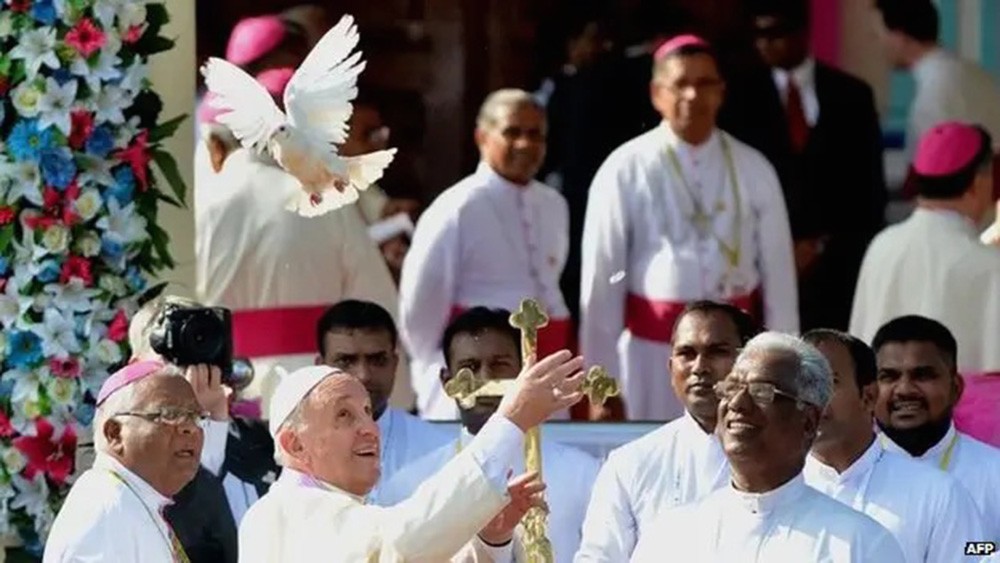
In his first address, the Holy Father spoke of reconciliation, justice, and healing. He emphasized the importance of seeking the truth, not to reopen old wounds, but to build unity among all Sri Lankans. His words came at a time when the country deeply needed hope and a path toward peace.
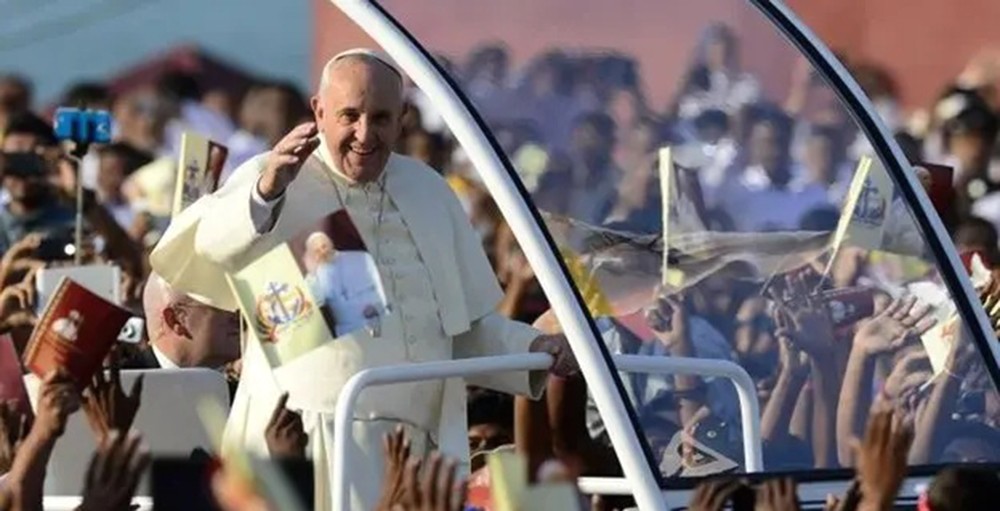
Canonization of Saint Joseph Vaz
A historic highlight of his Sri Lankan visit was the canonization of Blessed Joseph Vaz, the first Sri Lankan saint. At a grand Holy Mass in Colombo, attended by hundreds of thousands, Pope Francis lifted Saint Joseph Vaz as a model of missionary zeal and interfaith respect.
Joseph Vaz, an Indian born priest, had secretly ministered to Catholics in Sri Lanka during times of persecution. His life of courage, humility, and compassion inspired people across religions. Pope Francis praised him for building bridges across religious and ethnic divisions an example especially meaningful for a multi-faith nation like Sri Lanka.
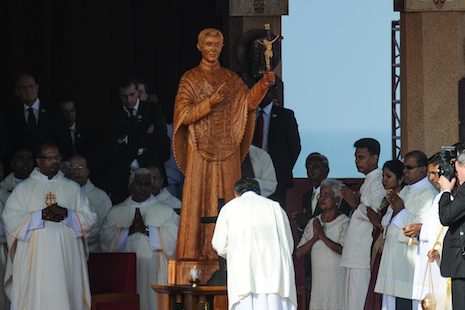
Interreligious Gathering in Colombo
Recognizing Sri Lanka’s rich religious heritage, Pope Francis also took part in an interreligious meeting at the Bandaranaike Memorial International Conference Hall. Leaders from Buddhist, Hindu, Muslim, and Christian communities gathered to reflect on how religion can build peace and national unity.
Pope Francis expressed his deep respect for other religions and said that dialogue and mutual understanding were essential for healing and progress. He reminded everyone that true religion always seeks peace, never violence.
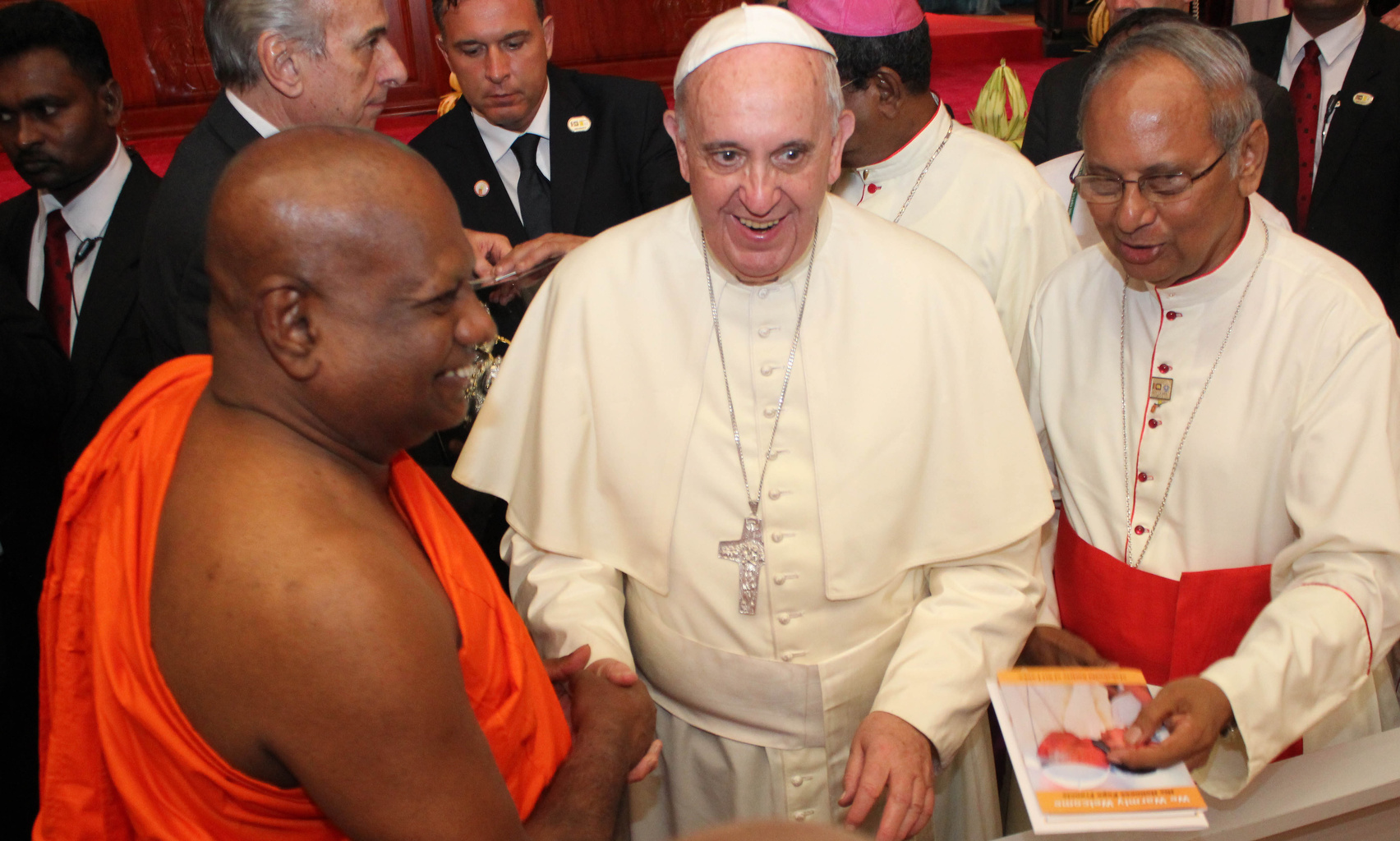
Pilgrimage to the Shrine of Our Lady of Madhu
Another deeply emotional moment came during Pope Francis’ visit to the Shrine of Our Lady of Madhu, located in the war torn north of Sri Lanka. This holy site, loved by both Tamil and Sinhalese Catholics, became a powerful symbol of unity during and after the civil war.
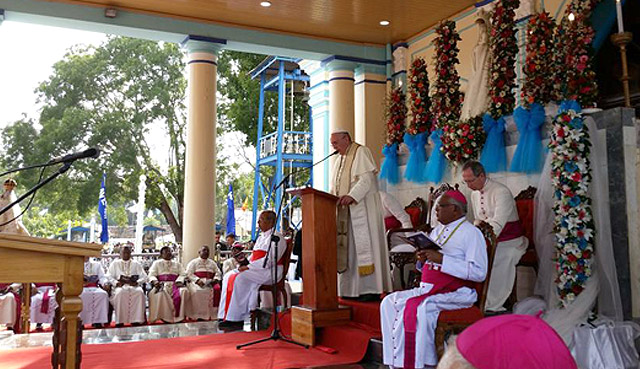
There, the Pope prayed with families who had lost loved ones and offered his blessings for peace and reconciliation. He spoke about the Virgin Mary as a Mother who walks with her suffering children, and he entrusted Sri Lanka’s future to her protection.
This visit left a lasting spiritual impact, reminding all Sri Lankans that faith can bring healing where politics and war cannot.
Navigating Criticism and Challenges
Despite his widespread popularity, Pope Francis has faced criticism both from outside and within the Church. Some have questioned his positions on climate change, immigration, and interfaith dialogue. Others have resisted his efforts to change Church governance and challenge clericalism.
Still, Pope Francis moves forward with courage and grace. His leadership is not about strict rules, but about deep faith and discernment listening to the Holy Spirit, to the people of God, and to the realities of today’s world. He often tells young people to “make a mess” in their efforts to bring justice and love into the world.
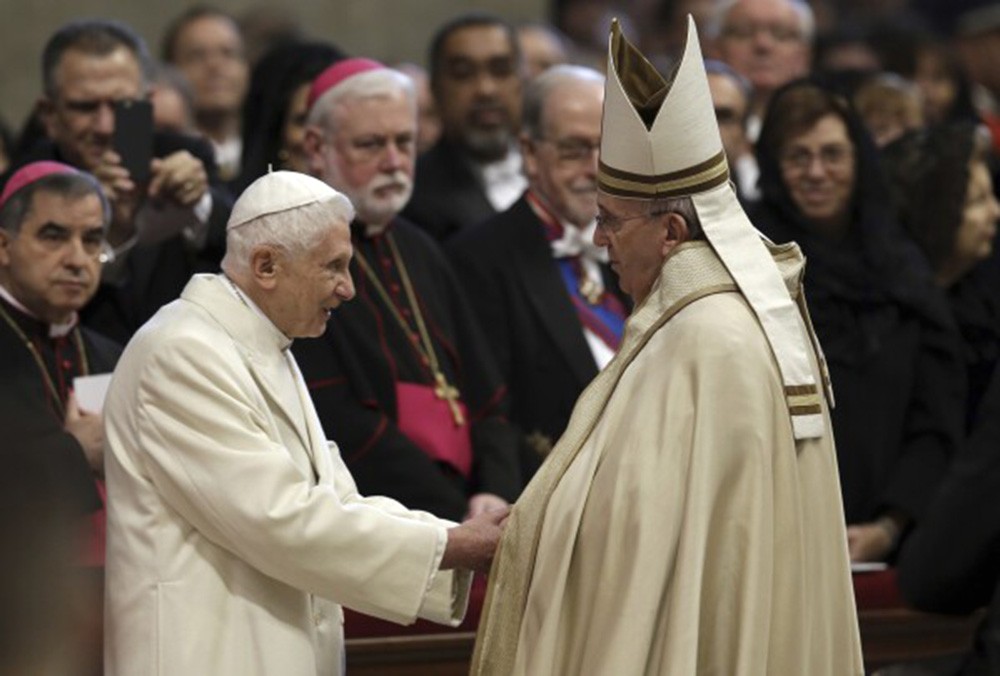
A Spiritual Legacy for the World
Pope Francis has changed what it means to be a global religious leader. He is not only a pope for Catholics, but a moral voice for people of all faiths and backgrounds. He speaks with clarity, honesty, and love challenging the world to see beyond borders and differences, and to act with mercy and hope.
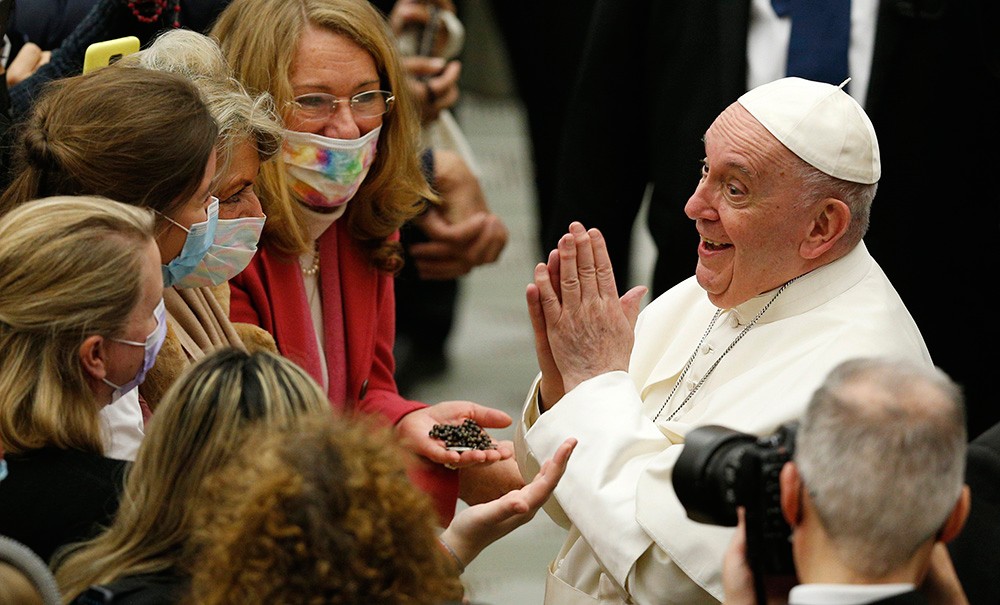
Whether standing in front of thousands in St. Peter’s Square or quietly praying with a refugee, Pope Francis brings the light of Christ to the darkest corners of the world. He reminds us that the Church is not a fortress but a field hospital, open to all who are wounded and searching for healing.
In a time of war, division, climate crisis, and spiritual hunger, Pope Francis continues to lead with simplicity, justice, and global compassion. His message is clear, Love without borders. Serve without fear. And never lose hope.
-RSW
